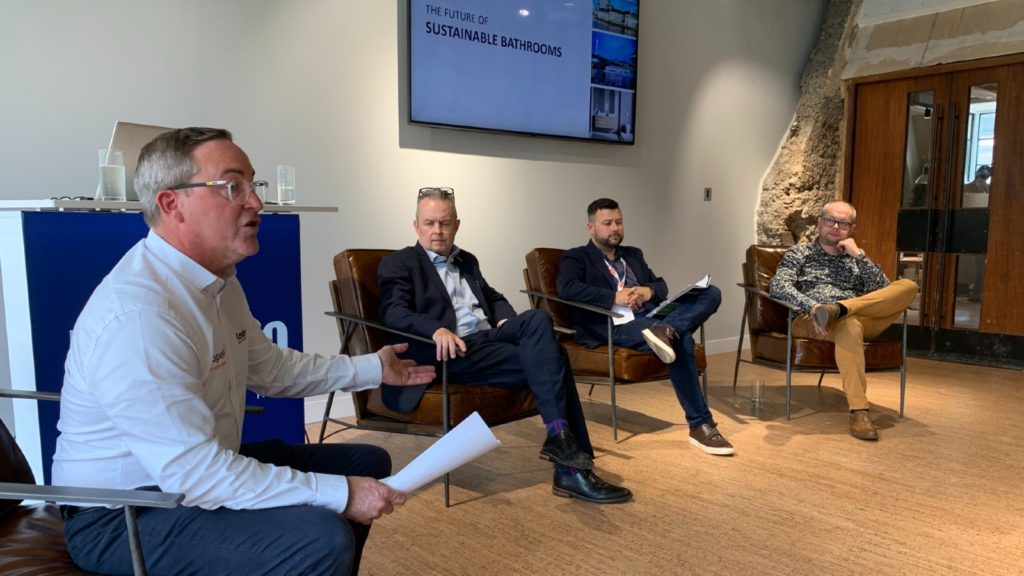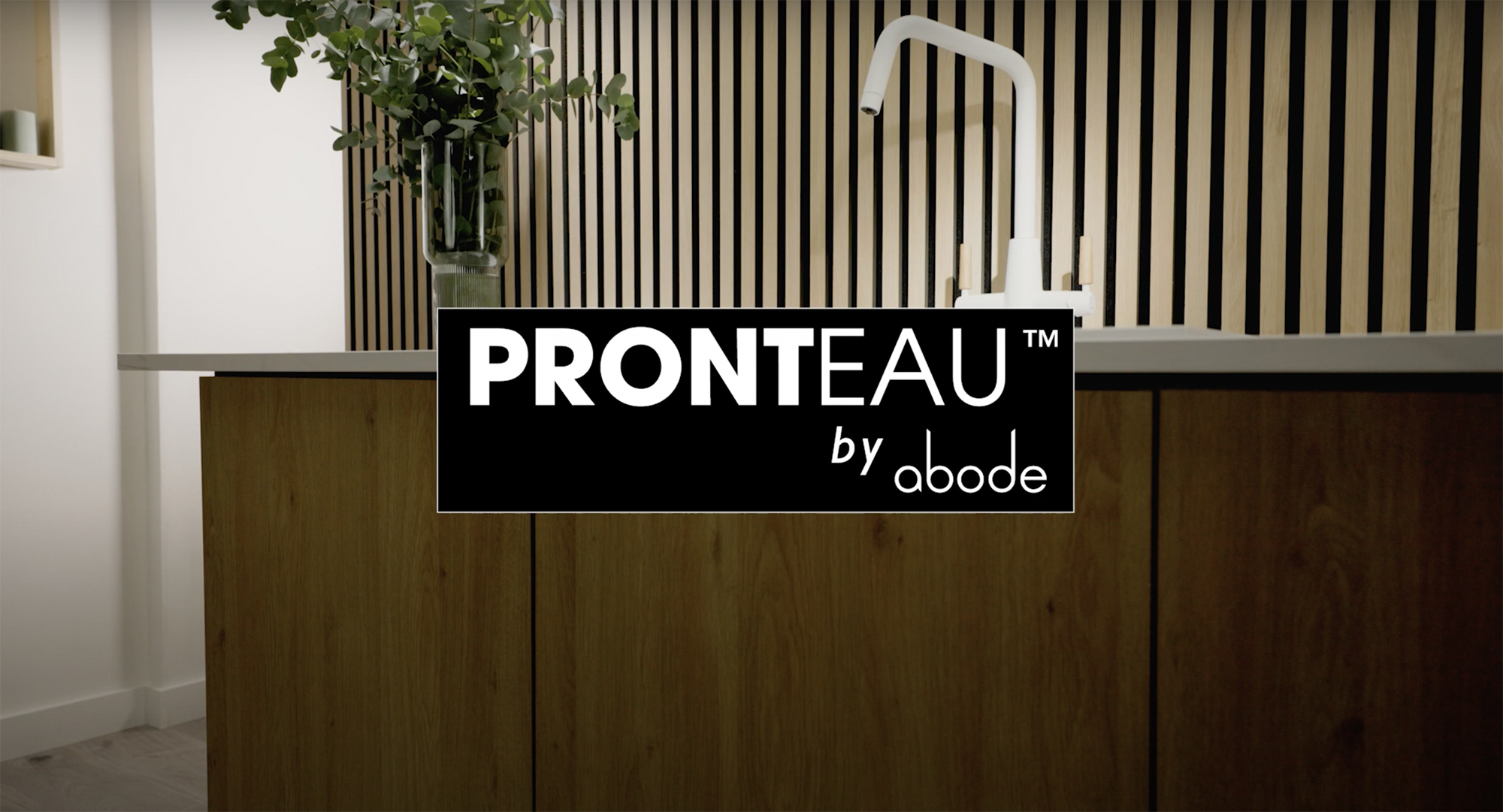Sustainability is a collective responsibility and there needs to be more support for retailers to help consumers make better decisions, was the view of an expert panel at a Lecico Bathroom event.

The Future of Sustainable Bathrooms was held at Country Hall in London, with a panel discussion chaired by head of marketing Sean Foley.
It included managing director of Lecico Bathrooms Antony Thompson, CEO of the Bathroom Manufacturers Association Tom Reynolds and head of sustainability at Byggfakta, parent company of Glenigan and NBS, Lee Jones.
Sponsored Video
Tom Reynolds pointed out there needed to be greater collaboration between Government and water companies to address issues such as low water pressure, which impacts the ability of manufacturers to create water-efficient products.
He stated: “There aren’t any simple, quick fixes.”
However, Reynolds added a key stakeholder which has an influence on water efficiency is the consumer, adding: “One of the challenges, I think we have, is around communicating challenges of water scarcity.
“The main advocates to encourage the end consumer are water companies that are concurrently pumping sewage into rivers, not fixing their leaks, taking large dividends and executive pay rises.
“Is it any wonder that consumers, as a whole, are a little bit sceptical about the need to save water?
“So there needs to be a new messenger about water scarcity – perhaps that’s manufacturers in partnership with others.”
The promotion of water efficiency could be better promoted in retail showrooms, with greater emphasis in displays and enhanced training from manufacturers, reported MD of Lecico Bathrooms Antony Thompson.
Speaking on behalf of bathroom manufacturers, he said: “I think we need to continue to do a better job on developing products that fit the space.
“I think we need to do a better job of educating downstream about these products and the benefits of them.
“We’ve got to do more to help the retailer, help the consumer make better choices.”
And Antony Thompson added: ” I think, as the market becomes bigger for these types of products then you would expect the economies of scale might help us make them a little bit more cost-effective.
“I don’t think consumers will pay double the price for a product that’s more sustainable than the one that’s next to it, but they should pay more.”
However, he also said consumers must also play their part and take responsiblity for making considered decisions.
Tom Reynolds stated the bathroom industry was suffering from “group think”, believing consumers aren’t interested in sustainability when a BMA research of end-users found the opposite.
He warned retailers that they could either voluntarily sell sustainability as a concept or face mandatory regulation: “Selling sustainability for retailers is going to come in one of two ways: Either it’s voluntary and you’re displaying the Unified Water Label, you learn about the products and become a thought leader around sustainability, so it’s an upsell. Or it’s going be mandated by Government and that is going to affect your choice and ability to provide that value add within your business.”
Having sat on round tables with bathroom retailers, Reynolds said their views were the responsibility for sustainability lay with the manufacturers, adding: “I’m sorry to say that’s just not the case.
“Everyone has a shared responsibility from the manufacturer through to the consumer and we’ve all got to learn to communicate the credentials of products – all the way through.”
Reynolds stated to improve sales of sustainable bathrooms through retail, the value add is expertise and ability to upsell: “Sustainability has to be aspirational and desirable for the consumer and the communication of that has got to come down to retailers and manufacturers working in partnership.”
Head of sustainability at Lee Jones of Byggfakta pointed to examples of how sustainability was promoted as aspirational in the automotive industry, by the likes of Tesla.
He stated:” If you look at any adverts from the likes of BMW etc, they all show electric as the flagship vehicles in the adverts.
“It’s all about changing the mindset of the consumer as to this is what luxury looks like.”
Lecico Bathrooms also used the Future of Sustainable Bathrooms event to introduce sanitaryware and furniture additions to its Design Series, which included low flush WCs.
It showcased a working model of low water and air powered flush WC Propelair, which it distributes in the UK.
Additionally, Lecico Bathrooms unveiled an exclusive UK partnership with Repeat Materials which provides surfacing for shower walls and floors made from 99% recycled PET.
Head of marketing Sean Foley said: “Sustainability is positioning high on our agenda from an operational perspective and also from a product perspective.
“There has been lots of work to get us here, and from this point forward we really want to position ourselves and differentiate ourselves from other organisations in the bathroom industry, in terms of sustainability.”



